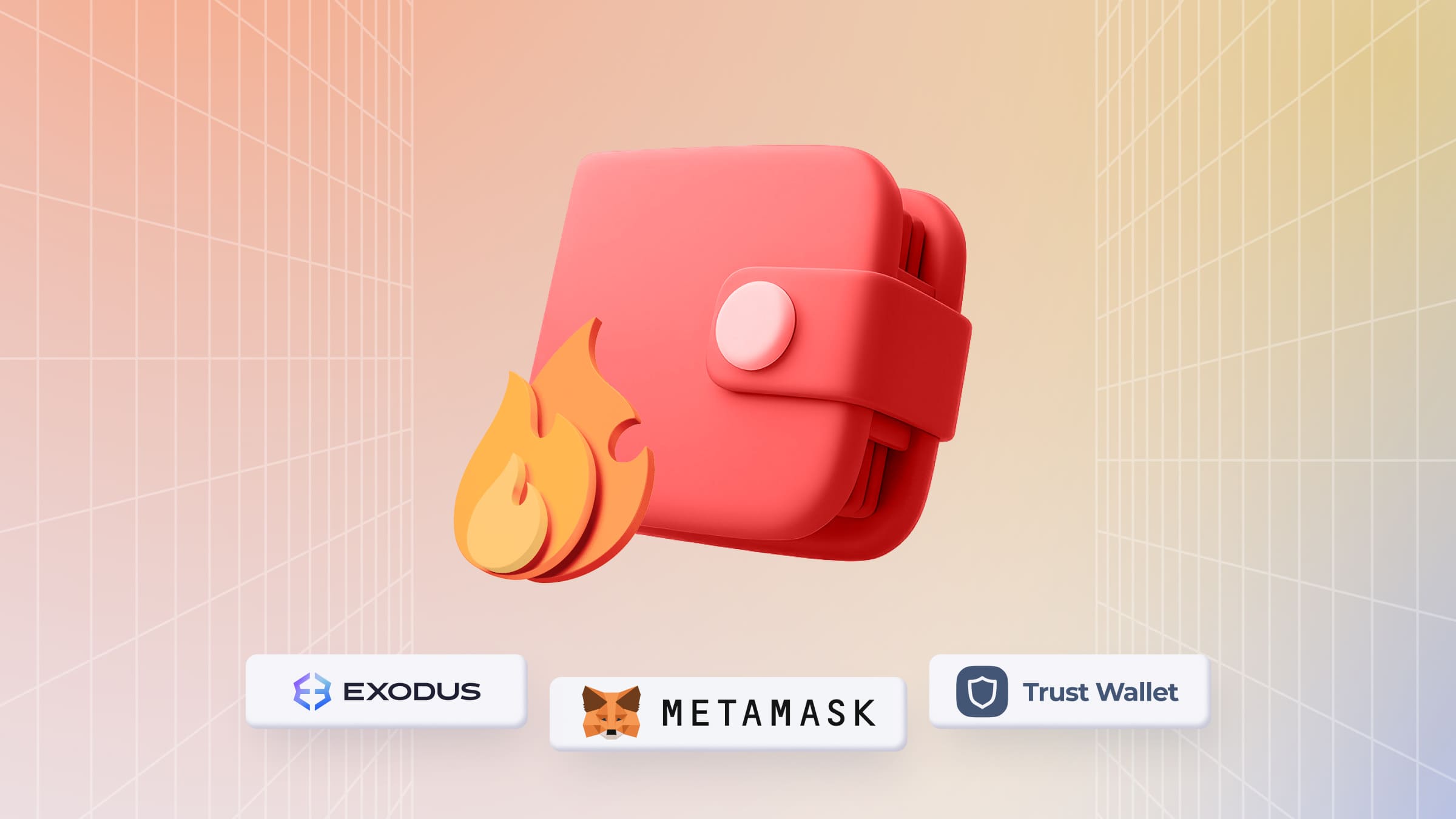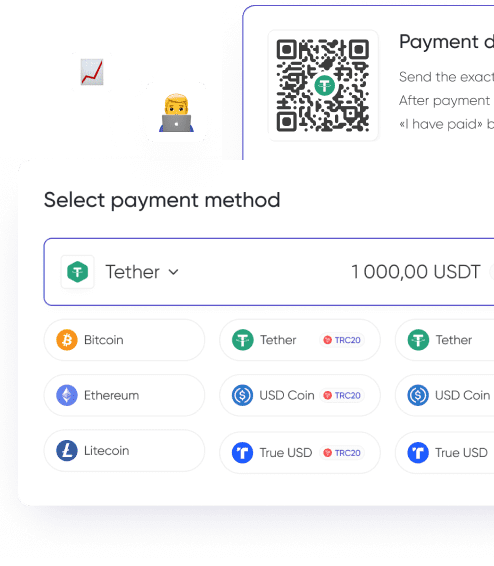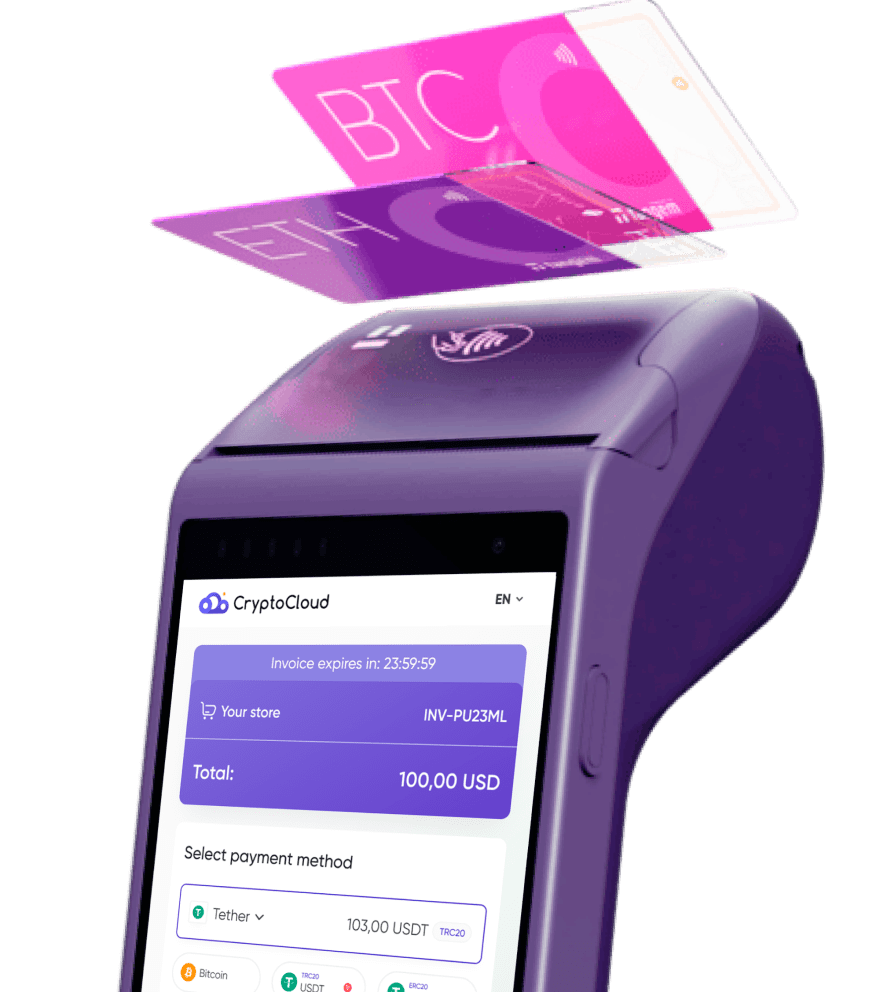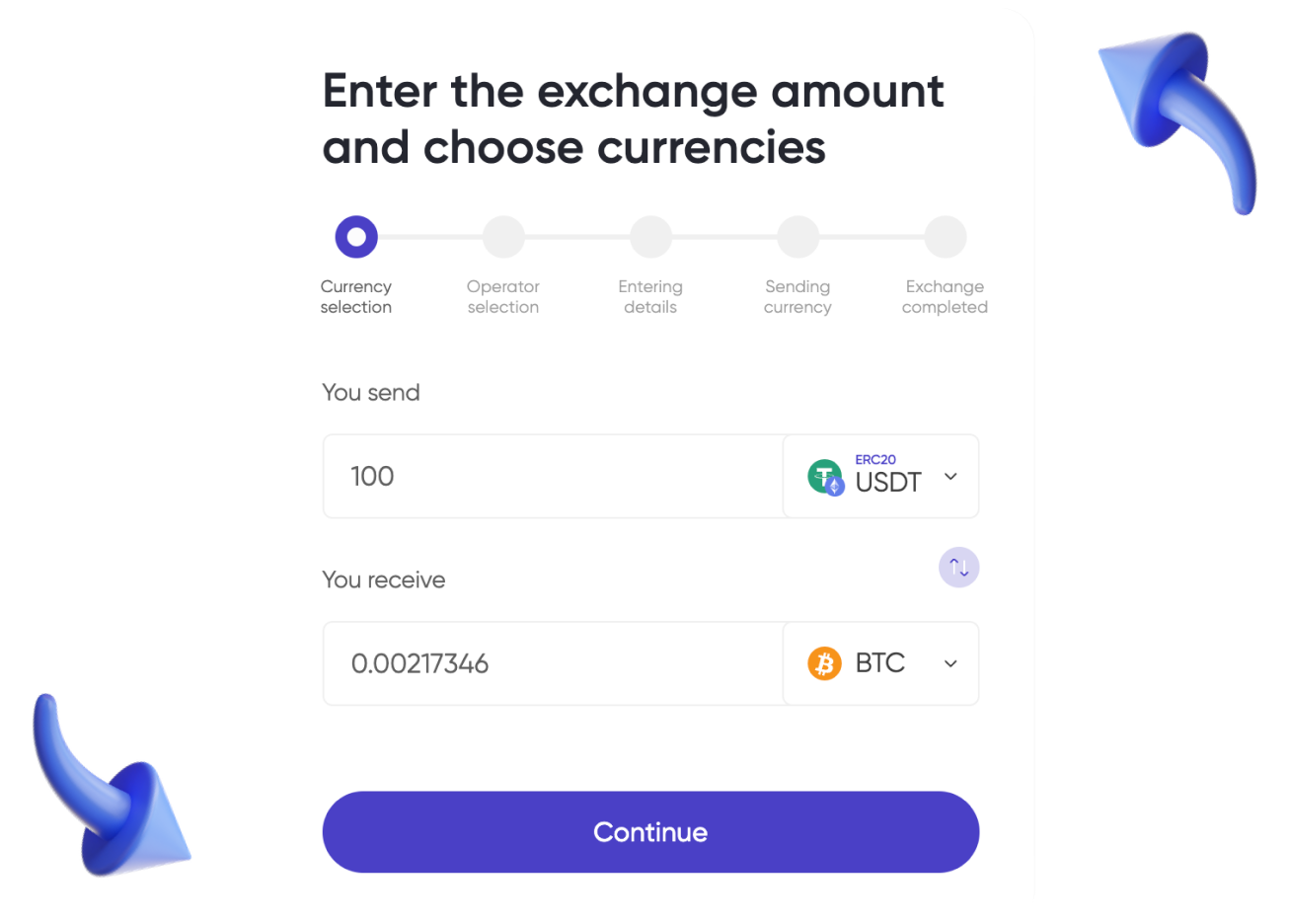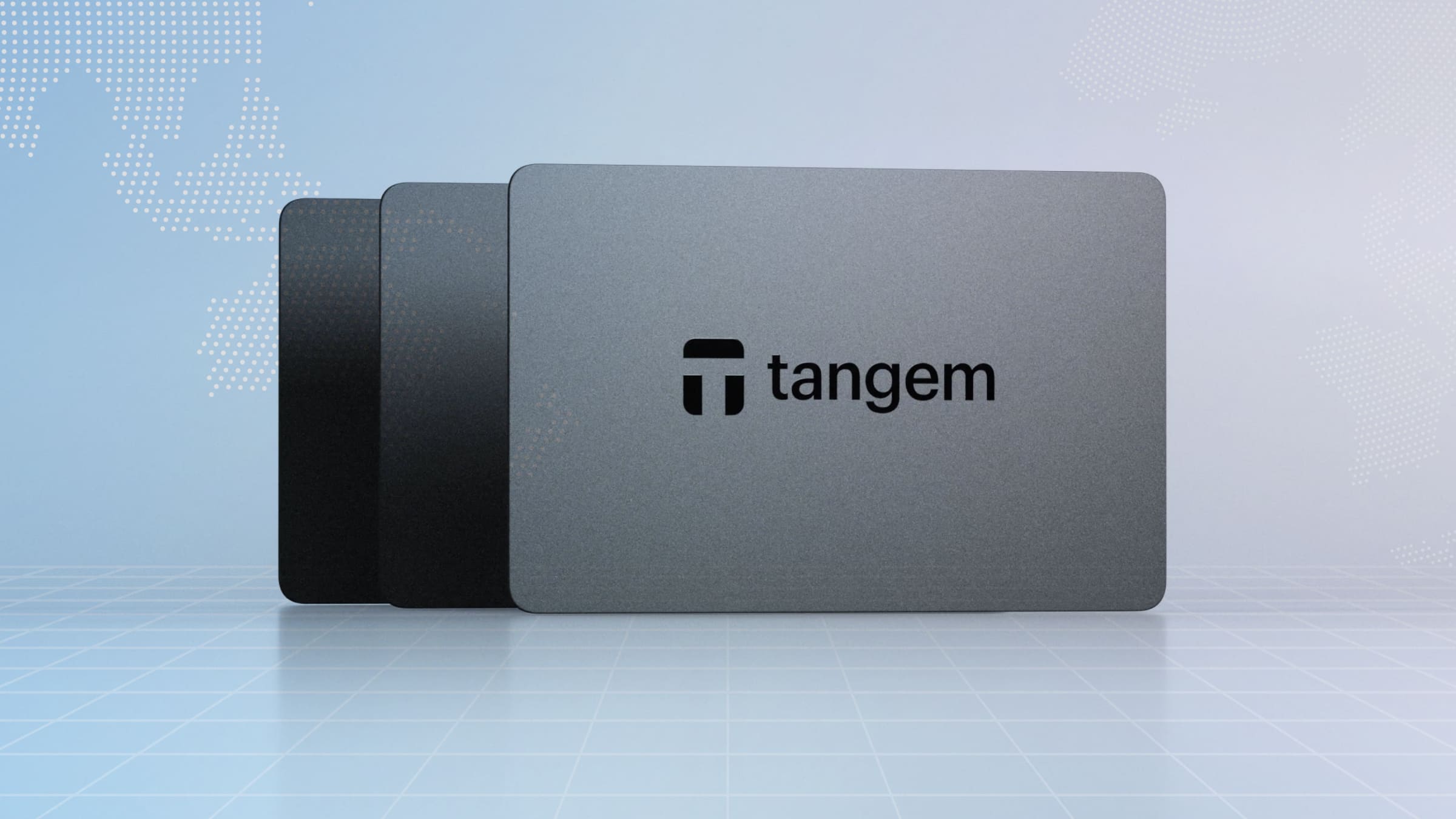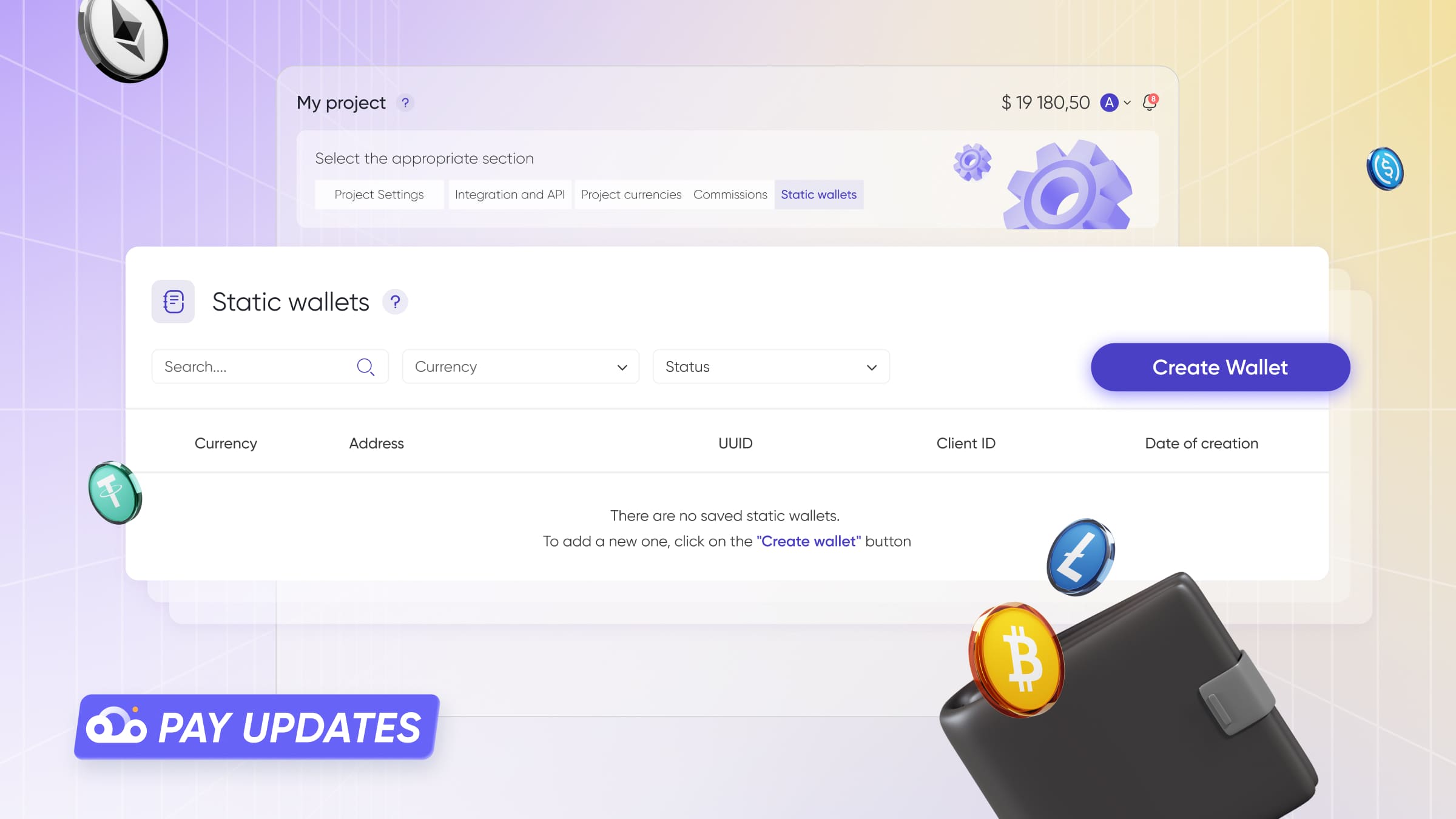Most crypto owners face the question of choosing a reliable and convenient service for storing cryptocurrency and making various transactions. There is a wide range of wallets for digital currencies on the market, and choosing the right one can be difficult.
We offer the top hot cryptocurrency wallets in 2024 and explain how a hot cryptocurrency wallet differs from a cold one and how to ensure the safety of your assets.
What Is a Cryptocurrency Wallet?
When solving the question of how to store cryptocurrency, the user encounters the concept of a cryptocurrency wallet. Such services are an electronic analog of wallets for traditional currency — it is a tool that allows you to store assets, as well as receive or transfer cryptocurrency to other users.
It should be taken into account that, unlike a regular wallet, a cryptocurrency wallet does not contain assets in the direct sense — they are in the blockchain network. A wallet is a tool for interacting with currency through public and private keys.
These are generated when the wallet is created, along with a passphrase that can be used to regain access. The public key is the address that other users need to send transfers.
The private one, in turn, is needed to access assets and make transactions with cryptocurrency. It is available only to the owner or (in custodial wallets) to the exchange to which the wallet belongs.
Features of Hot Cryptocurrency Wallets
There are two main types of services for storing cryptocurrency: hot and cold cryptocurrency wallets. They are distinguished by the presence of a permanent connection to the network.
Cold wallets are not connected to the Internet and are external media — usually a device in the form of a flash drive or a card. Another variant of a cold wallet is software installed on a device that is not permanently connected to the network.
Such wallets provide high security of assets by storing the private key directly on the device.
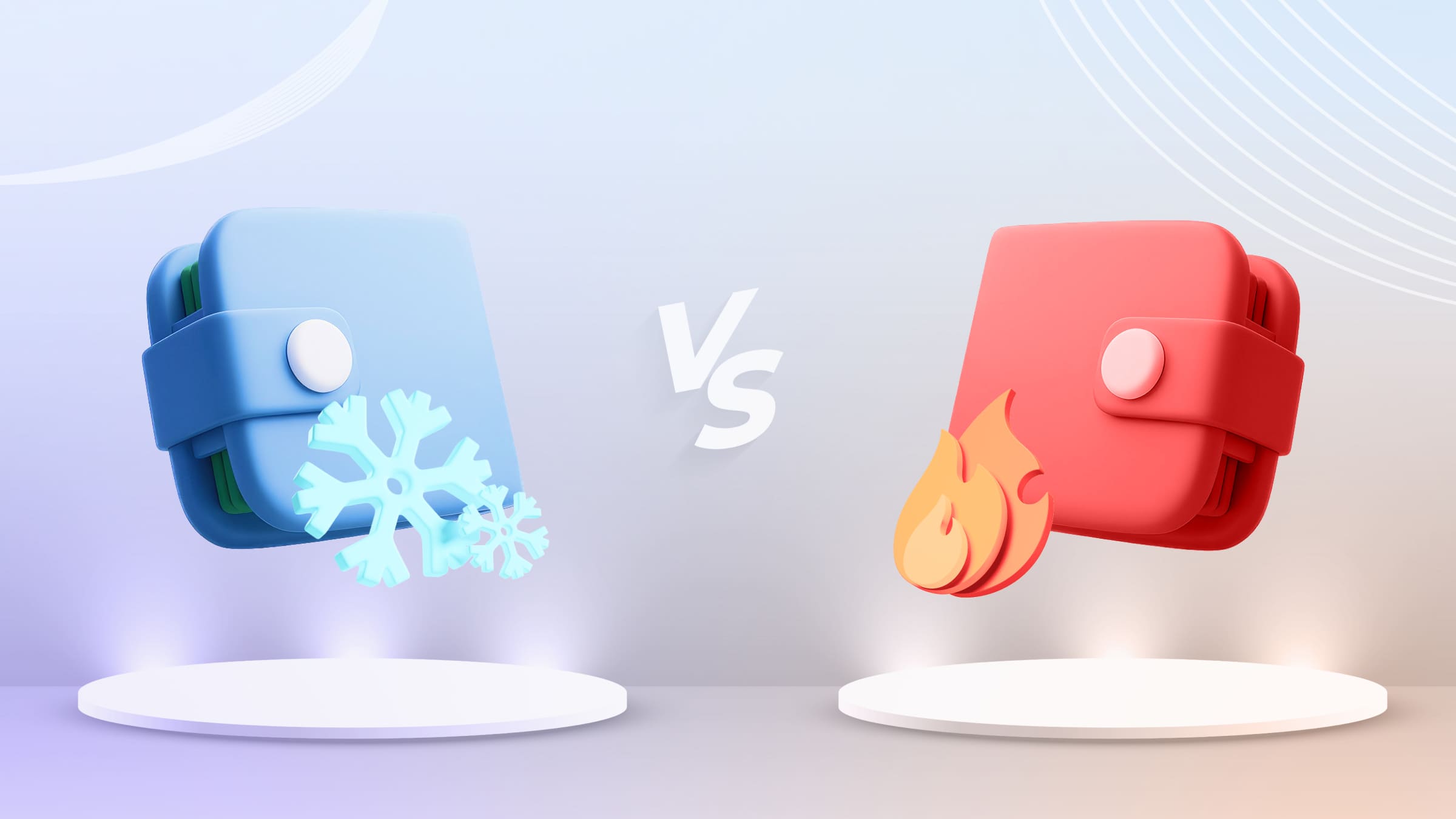
A hot cryptocurrency wallet is software (browser extension or computer/smartphone app) with a permanent internet connection. Its private key is stored on the server, which provides more convenient access to assets but makes the storage more vulnerable to hacking.
When choosing where to store cryptocurrency, it is recommended to focus on the user's goals. A hot wallet will be a more convenient option if the assets are intended for regular use (making transfers, lending, staking, etc.).
For long-term storage of large sums, safer cold wallets are usually chosen. Many crypto owners combine hot cryptocurrency wallet apps and cold hardware vaults, diversifying their assets.
Top Hot Cryptocurrency Wallets
Tangem Wallet
This crypto wallet combines security with a user-friendly design, making it a great choice for anyone looking for a reliable and easy-to-use option. Tangem uses sleek, NFC-enabled smart cards and a wearable ring to store private keys offline.
To access your assets, simply tap the card or ring on a smartphone (iOS or Android). No cables, batteries, or complex setups are required. Tangem supports over 70 blockchain networks and 16000 cryptocurrencies. Users can also buy, sell, swap, stake, and track their crypto right in the Tangem app.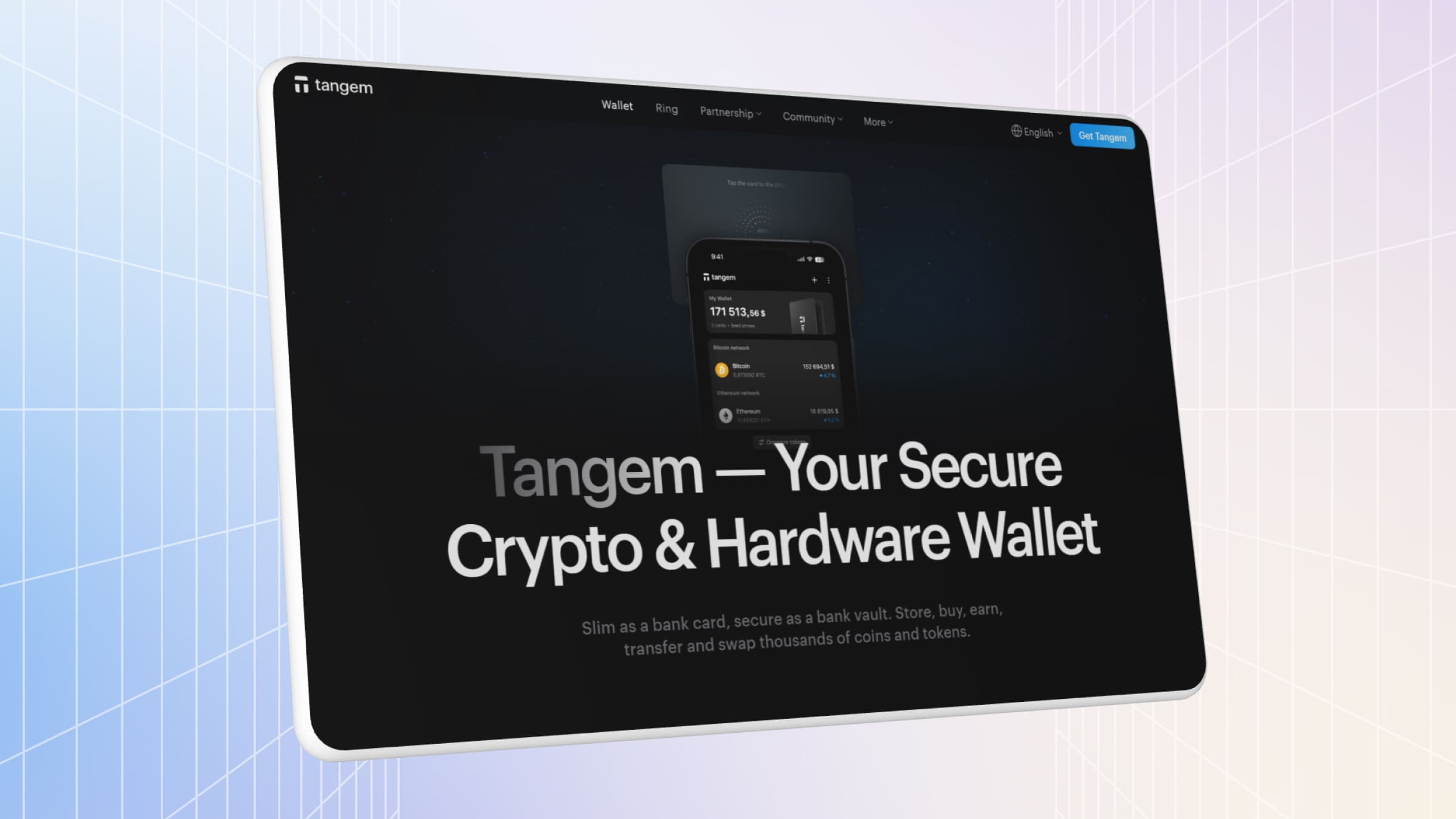
Exodus
Exodus is the first in our ranking of hot crypto wallets. It is a non-custodial service with support for 50+ networks and 1000+ coins and tokens. The wallet is available in both app and browser extension formats.
Users can buy cryptocurrency (payment by bank card, Apple Pay, Google Pay and through other services is available), perform instant currency exchange, work with DeFi applications, manage NFT, and engage in steaking.
Its main disadvantage is rather high commissions for operations on buying and selling cryptocurrency.
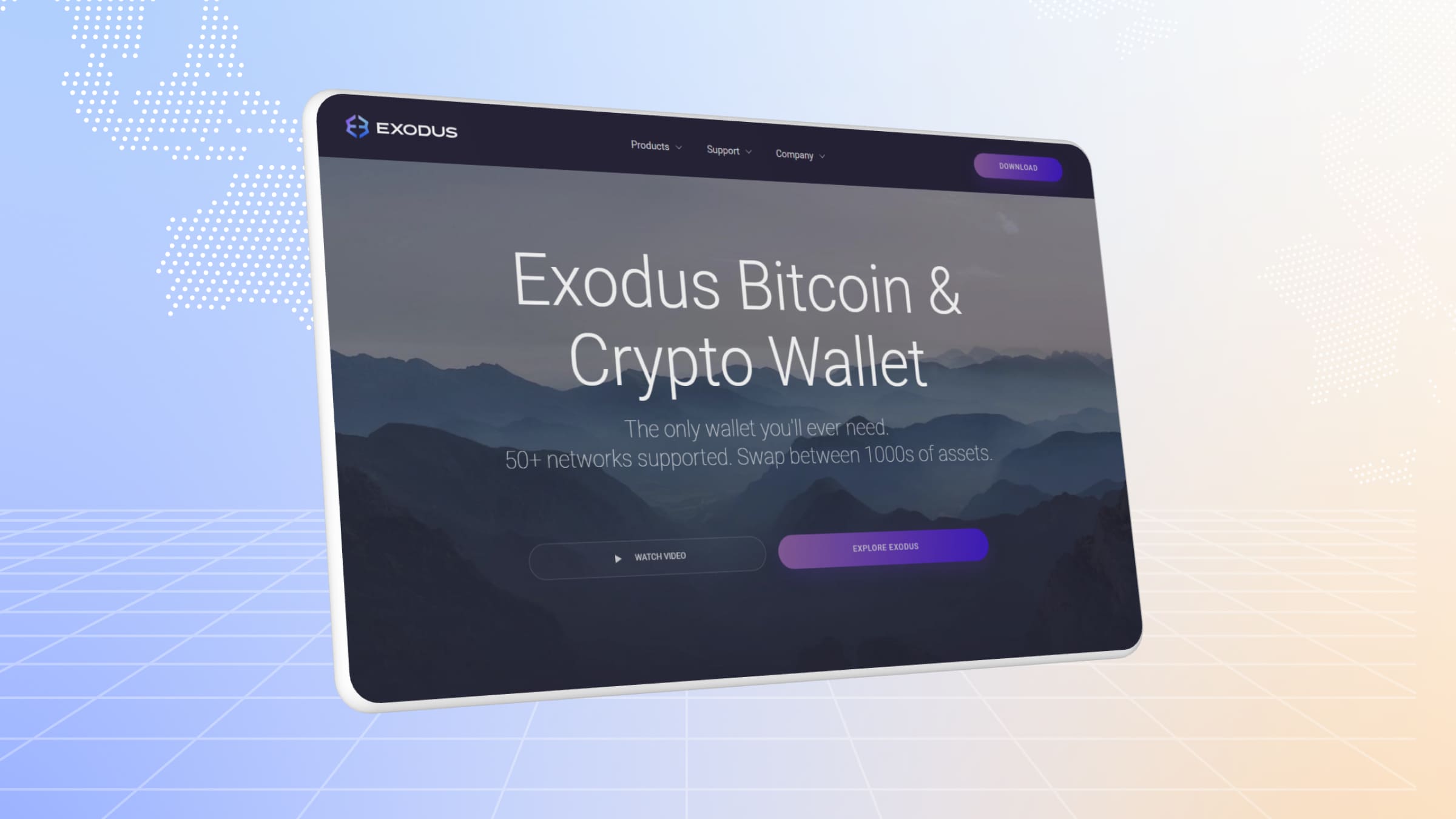
MetaMask
MetaMask is a hot wallet available as a browser extension and an application for mobile devices. It should be noted that there is no desktop version of the wallet.
The functionality includes buying, selling and exchanging currencies, as well as working with blockchain applications. The system is based on Ethereum and supports various cryptocurrency networks. Several wallets can be connected to one account for convenient asset management. Passwords and keys are stored on the user's device, which provides full control over the assets and wallet.
The article «Crypto Wallet MetaMask: Advantages and Features» explains more about the wallet's functionality.
Electrum
Electrum is a service for storing Bitcoin (there is no support for other currencies). This hot wallet in 2024 is still relevant despite its long history—Electrum was developed in 2011. The service has a minimalistic interface that is convenient for novice users.
Electrum application can be used for hot and cold storage (when installed on an unplugged device). The user's private keys are encrypted and stored on their device. All transactions are validated via SPV. Decentralized servers ensure fast application performance. There are integrations with popular hardware wallets.
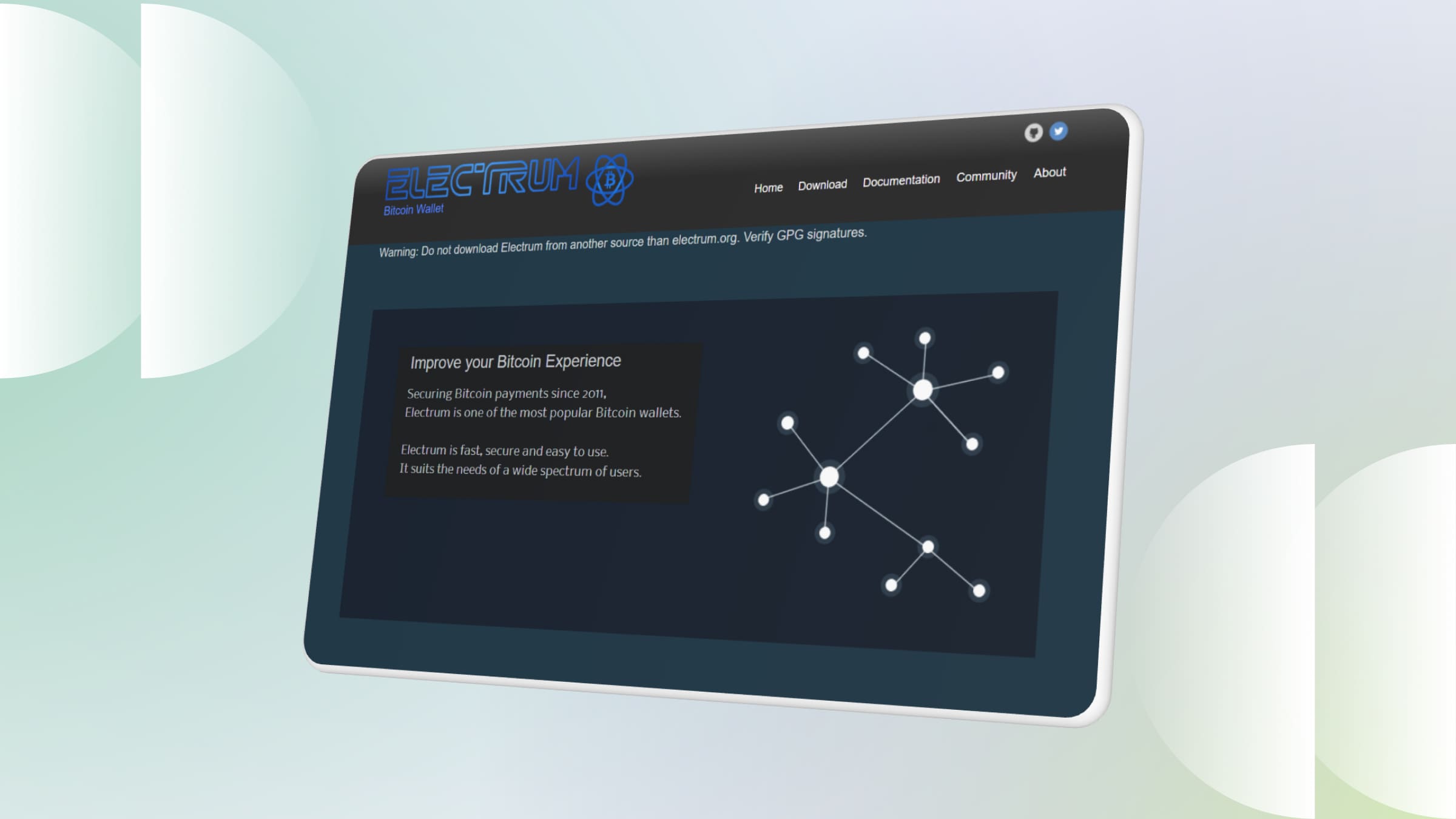
Trust Wallet
Trust Wallet is a hot non-custodial wallet that can be used as a mobile app and as a browser extension. It supports over 100 blockchains and 10 million assets. Users can access direct transfers from Binance, Coinbase and other popular crypto exchanges, as well as staking, swaps and buying cryptocurrency.
The wallet is non-custodial — private keys are available only to the owner. Encryption and a tracking system for high-risk transactions ensure security.
You can find a more detailed review of the wallet in our article.
Coinbase Wallet
Coinbase Wallet is a hot wallet from Coinbase. Despite belonging to a centralized exchange, the wallet is non-custodial — the keys belong to the owner.
The service supports Bitcoin, Ethereum, Solana, Dogecoin and all Ethereum-compatible networks. Hundreds of thousands of coins and tokens are available to users, as well as thousands of decentralized applications. There is NFT support, a staking option, and cryptocurrency buying in 130+ countries. The service is compatible with Ledger hardware wallets, making it easy to transfer assets to cold storage.
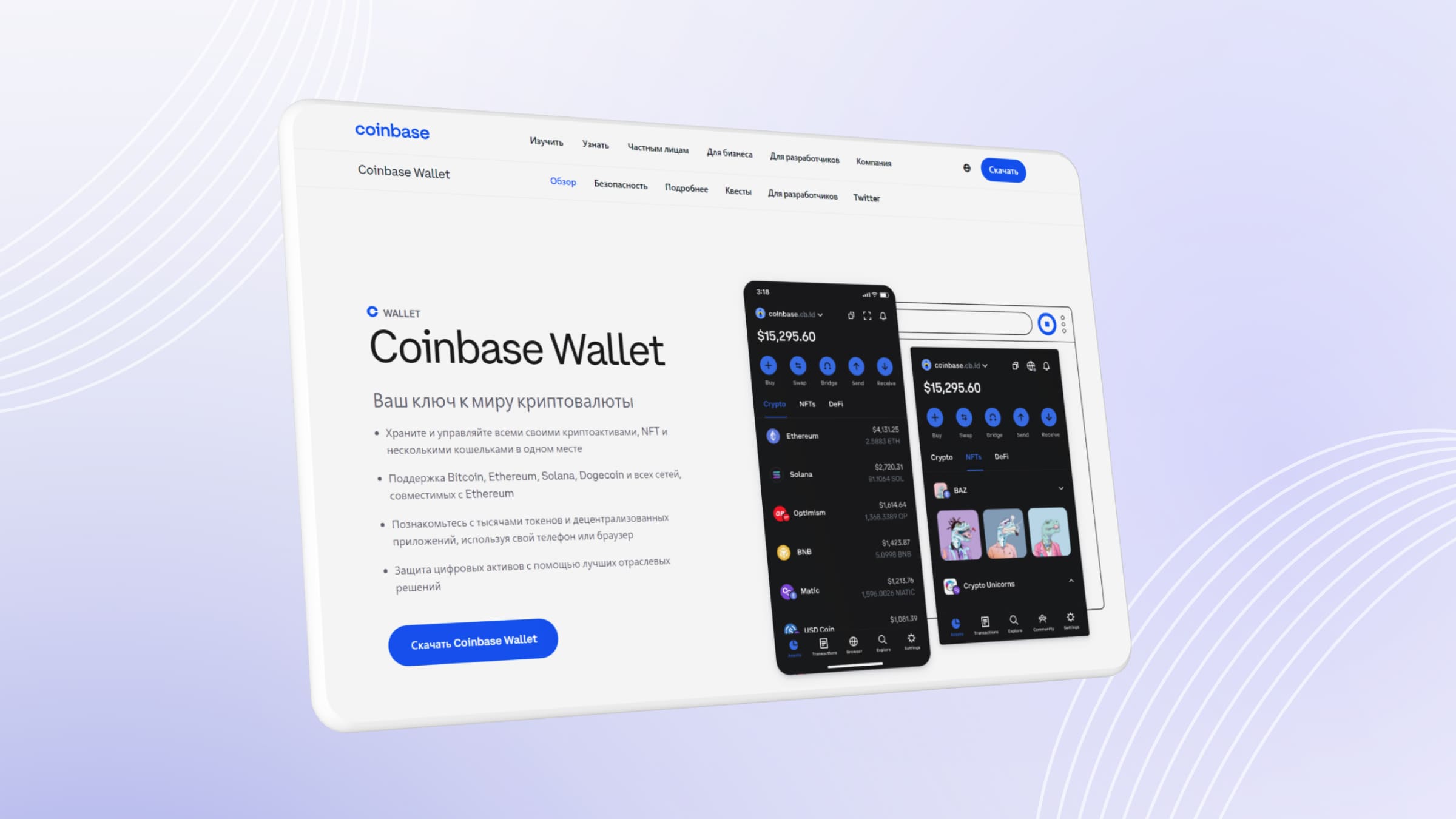
Zengo Wallet
Zengo Wallet is a hot non-custodial wallet with support for 120+ cryptocurrencies. One of its main features is the way crypto wallets are secured. The service does not use cid phrases or private keys. Instead, protection is provided through the MPC confidential computing protocol.
In addition to the standard functionality (buying, selling, exchanging currency), Zengo Wallet offers options such as additional protection against asset theft, a service for transferring the wallet to another user in case of the owner's death, and improved protection against attacks.
Guarda Wallet
Guarda Wallet is a multi-currency wallet with support for 50+ blockchains and 400,000+ tokens. It is available as an app for mobile and desktop devices, as well as an online version.
Users have access to fast currency purchases, instant exchanges, and staking. The system is compatible with Ledger hardware wallets. In addition, Guarda Wallet offers prepaid VISA cards for using the money in the cryptocurrency wallet for household payments. Such cards are funded in advance from the crypto account and used in the same way as regular VISA bank cards.
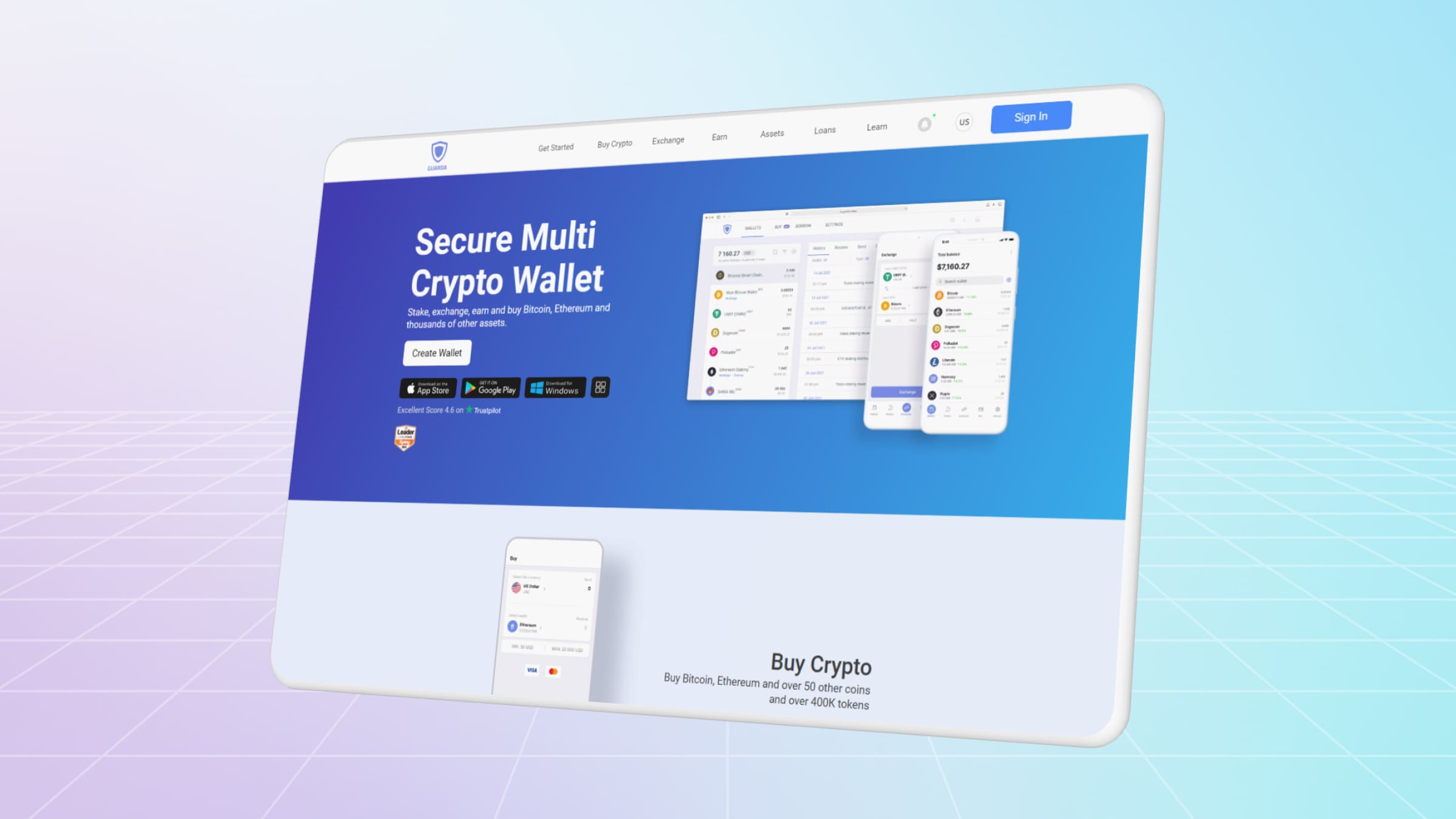
How to Secure Your Assets
The safety of funds depends not only on the chosen option of their storage but also on additional security measures that the user can take:
- Storing small amounts. Large amounts are better to keep on cold wallets — due to the lack of connection, they are more reliably protected from hacking. It is recommended to keep only actively used funds on hot wallets.
- Download applications and extensions from reliable sources. Only trusted services should be used, and make sure that the site offering to install the software is official.
- Using two-factor authentication. Many wallets offer 2FA as a mandatory method of confirmation or recommend such protection as an additional means of securing assets.
- Avoiding suspicious links. Hot wallets are more vulnerable to hacking due to constant connectivity. Scammers can use phishing links and other tools to gain access.
- Secure seed phrase storage. This is a tool that allows you to regain access to your wallet if your private key is lost. If the seed-phrase falls into the hands of attackers, they will be able to access the funds.
Hot Wallets: Are They Worth Using?
Hot wallets are services for storing cryptocurrency that have a constant connection to the network. This reduces their security compared to cold wallets, but simplifies asset management.
Most users combine hot and cold wallets: the main assets are stored without access to the network, and the amount needed for operations remains in the hot account. If a user chooses a trusted service and observes security measures, he or she can count on reliable storage of funds.

